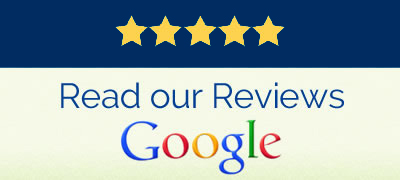
Attention all boat enthusiasts! Learn the truth about boat insurance vs. home insurance coverage
Shield Insurance Agency Blog | Boat Insurance | Home Insurance | Start A Quote Today!
If you’re a boat owner, you may be wondering if your boat is covered by your home insurance policy. After all, your boat is an important investment, and you want to make sure it’s protected. In this blog post, we’ll explore the topic of boat insurance and whether or not your home insurance policy provides adequate coverage. We’ll also discuss the different insurance options available to boat owners, boat accidents, liability coverage, property damage, and more. So, let’s dive in!
Boat ownership comes with a unique set of risks and responsibilities. Accidents can happen on the water, and it’s important to have the right insurance coverage to protect yourself and your investment. While some homeowners insurance policies may offer limited coverage for small boats, it’s generally recommended to have a separate insurance policy for adequate protection.
One of the main reasons why boat owners should consider getting boat insurance is liability coverage. If you’re involved in an accident on the water and someone is injured or their property is damaged, you could be held responsible for the costs. Boat insurance provides liability coverage to help protect you in these situations. Without proper coverage, you could be facing significant financial loss.
Another important aspect of boat insurance is property damage coverage. Just like with car insurance, boat insurance can help cover the costs of repairs or replacement if your boat is damaged or stolen. This coverage can be especially valuable if you have a high-value boat or if you frequently use your boat in areas with a higher risk of theft or vandalism.
When it comes to boat insurance, there are different options available to suit your needs. Watercraft insurance is a broad term that encompasses various types of coverage, including boat insurance. It’s important to understand the different types of coverage available and choose the one that best fits your specific needs.
Boat insurance claims can be complex, and having the right coverage can make a big difference in the outcome. It’s important to carefully review your policy and understand what is covered and what is not. Comparing boat insurance coverage options can help you make an informed decision and ensure that you have the right protection in place.
Boat safety is another important consideration for boat owners. While insurance can provide financial protection, it’s always best to prevent accidents from happening in the first place. Following safety guidelines, such as wearing life jackets, maintaining your boat properly, and being aware of your surroundings, can help reduce the risk of accidents and keep you and your passengers safe.
Now, let’s address some common misconceptions about boat insurance. One of the biggest misconceptions is that boat insurance is unnecessary if you have homeowners insurance. While some homeowners insurance policies may offer limited coverage for small boats, it’s important to have a separate boat insurance policy for adequate protection. Don’t assume that your home insurance policy will cover all the risks associated with boat ownership.
Here are a few boat insurance tips to keep in mind:
- Shop around and compare quotes from different insurance companies to ensure you’re getting the best coverage at the best price.
- Consider the value of your boat and the risks associated with your boating activities when choosing coverage limits.
- Understand the terms and conditions of your policy, including any exclusions or limitations. Regularly review and update your policy to ensure it still meets your needs as a boat owner.
If you’re in need of boat insurance, Shield Insurance Agency can help. As an independent insurance agency, Shield Insurance Agency represents over 40 insurance companies, giving you access to a wide range of coverage options. Contact Shield Insurance Agency at (616) 896-4600 for a free quote today or start the quoting process by visiting this LINK and an agent will be in touch soon.
In conclusion, boat insurance is essential for boat owners to protect themselves and their investment. While some homeowners insurance policies may offer limited coverage for small boats, it’s generally recommended to have a separate boat insurance policy for adequate protection. Boat insurance provides liability coverage, property damage coverage, and peace of mind. Remember to compare coverage options, practice boat safety, and choose the right insurance agency to meet your needs.
More Blogs by Shield Insurance Agency
- What value comes with my renters insurance plan in Michigan?
- Navigating Michigan Auto Insurance: Understanding Collision Coverage
- Russ Cook Runs 385 Marathons In 352 Days, Becomes First Man To Run Entire Length Of Africa
- Life Insurance Demystified: Whole Life vs. Term Life – Which is Right for You?
- Restaurant’s Quest For Mystery ‘ French Fry Girl ‘ Ends In Heartwarming Discovery




























































